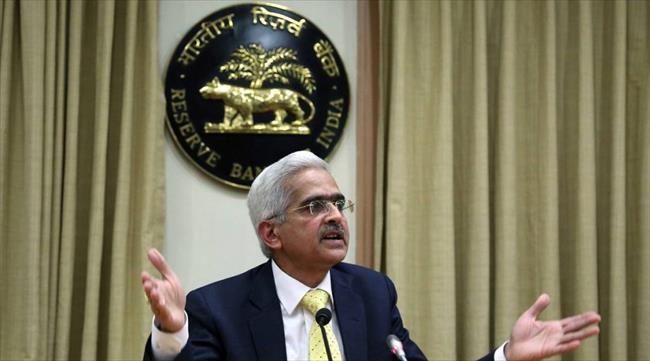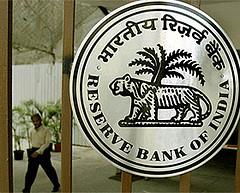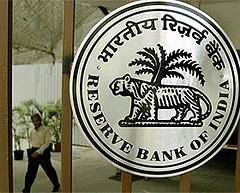
The Reserve Bank of India's choice to keep the repo rate steady at 5.5% during its October 2025 review fosters a stable backdrop for Jaipur's property scene. This, alongside GST tweaks, drives buyer interest in affordable homes, sparking festive season sales in this tier-2 city. Developers note rising demand for long-term value.

The Reserve Bank of India's choice to hold the repo rate steady at 5.50% during its October 2025 meeting has sparked positive reactions from real estate developers and experts. This decision is set to keep home loan interest rates stable, fostering ongoing buyer confidence in the Delhi NCR property market and supporting sector growth.

RBI introduces relaxed Loan-to-Value ratios, priority sector norms, and RERA compliance to enhance home loan accessibility in Mumbai's real estate recovery.

The Reserve Bank of India (RBI) uses the repo rate, the interest rate at which it lends to commercial banks, to control inflation.

The average capital values of completed and under-construction properties in Gurgaon witnessed significant growth, with micro-markets like New Gurgaon and Dwarka Expressway showing substantial upticks. North Goa also saw a surge in villa prices due to rising demand from remote workers.

India's real estate market is booming, driven by factors like changing consumer preferences, government policies, and technological advancements. The market is expected to reach $1 trillion by 2030.

In Q1 2024, India's top seven cities recorded over 1.30 lakh homes sold, the highest in a decade, supported by the RBI's decision to maintain a stable repo rate.

Indian HNWIs and UHNWIs display strong economic optimism, with 71% planning real estate purchases in the next two years, driven by capital appreciation.

Real estate developers are requesting loan restructuring, interest moratoriums, and more liquidity support from the RBI after their Covid relief package announcement.

India's real estate sector, particularly residential, is rebounding thanks to government policies like reduced home loan interest rates and tax relief, attracting more buyers and foreign investment.

The RBI's three-month moratorium on home loan repayments aims to alleviate financial burdens for homebuyers amidst COVID-19, aiding economic stability and liquidity for developers.

ICRA forecasts that the coronavirus outbreak may create negative economic dynamics, which could reduce real estate company revenues and construction capacities. This could increase credit pressures.

Bangalore surpasses Mumbai as India's most expensive city, according to RBI's CPI. High living costs attributed to the IT industry and inflated prices of essential goods.

Indian housing prices saw a modest quarterly increase of 0.89% yet remain 14-15% higher yearly. Lucknow, Ahmedabad and Kochi experienced the most significant growth.

Indian real estate deliveries face significant delays in 2013, impacting homebuyers. NCR lags behind, while Pune and Mumbai show better performance. Factors such as capital shortage, over-leveraging, and land availability contribute to the slowdown.

The real estate market, once a high-growth sector, is currently facing challenges due to economic slowdown and revised funding rules. Experts advise caution and research before investing.

Office space availability in India's top cities plummeted by over 75% in Q2 due to high vacancy rates and weak commitments in ongoing projects, marking the lowest supply in recent quarters.

The Reserve Bank of India cut the repo rate by 0.25%, a move welcomed by realtors but deemed insufficient by some developers who believe a larger cut is needed to significantly impact the real estate sector.

Finance ministry officials and RBI plan to meet to discuss relaxing external commercial borrowing norms to enhance affordable housing projects in India.

Office space demand in India is projected to reach 30.5 million sq. ft. in 2013, a 12% year-over-year increase, driven by improving global economy, increased FDI, and revised repo rates.

Home sales in NCR have surged by 46% in January, with clear property acquisition issues boosting buyer confidence. New launches dropped by 35% as developers focused on reducing unsold inventories.

RBI's rate cuts have reduced home loan interest rates, reviving the residential market and boosting buyer sentiment across India.

The Reserve Bank of India has reduced the Repo Rate, allowing banks to offer home loans at lower interest rates, benefitting new borrowers significantly.

NAREDCO urges the government to grant infrastructure status to the entire housing sector to gain tax benefits and stimulate housing demand.

Finance Ministry proposes that real estate firms and brokers be permitted to operate banks, with regulations to prevent conflicts of interest and mitigate risks.